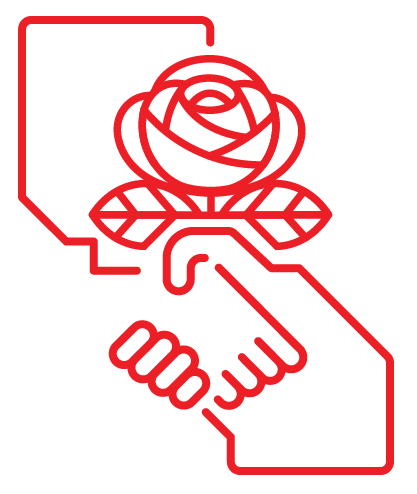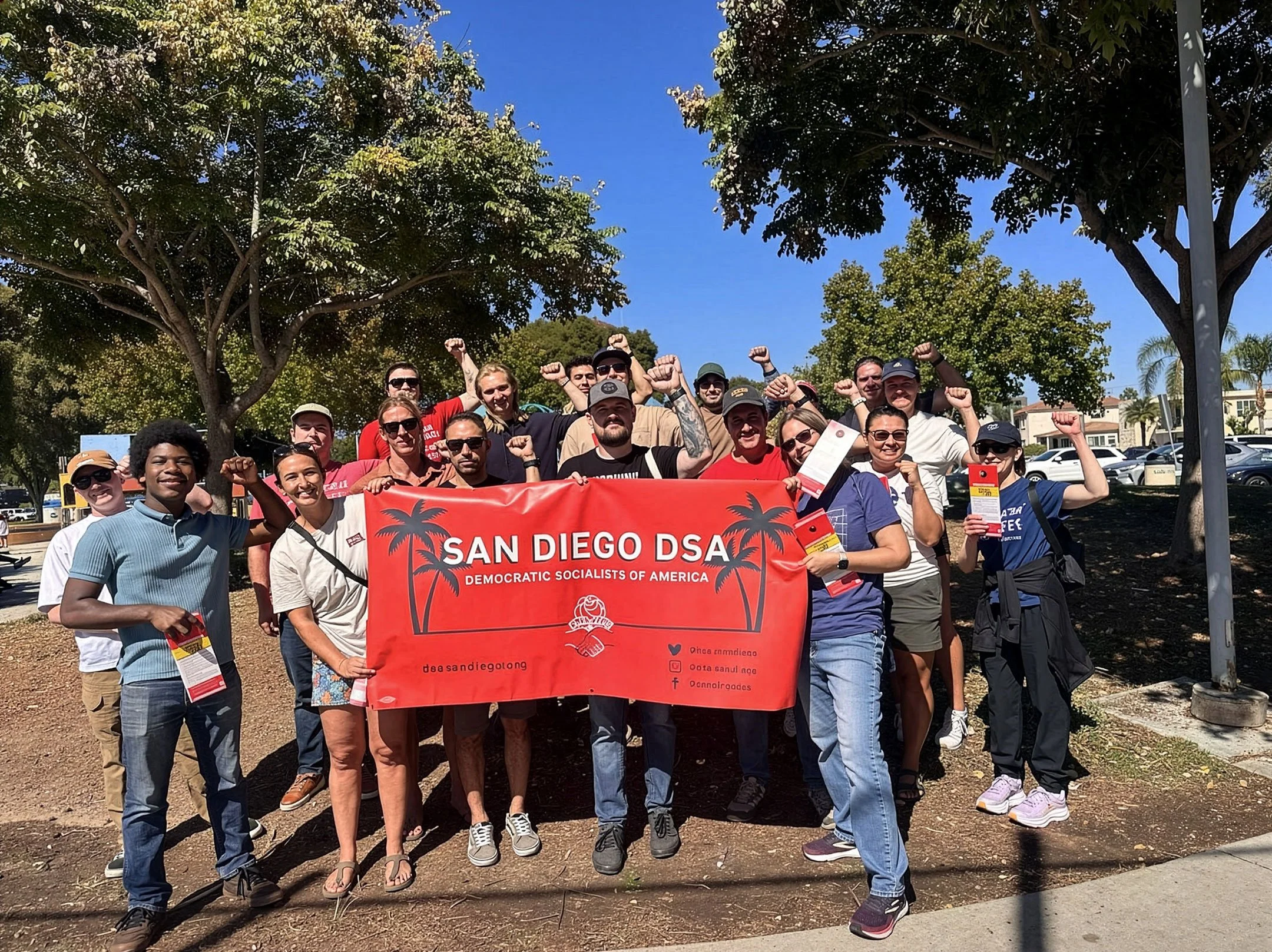Gathering Mass: Democratic Socialism on the Rise
DSA San Diego’s Prop 50 canvassing kickoff in North Park.
Zohran Mamdani was just elected Mayor of New York City. He’s not the first Democratic Socialist to win a prominent office, and arguably other office-holders wield more power—Bernie Sanders as a U.S. Senator, Alexandria Ocasio Cortez as a Representative—but what makes Zohran different is how he got there. As he himself put it at DSA’s national convention in 2023, he has been able to stand against the immense power of capital because he has DSA at his back. Our members raised him into office originally, we catalyzed his mayoral run, and we could not be prouder of how he exemplifies our theory of change.
In the U.S., nobody needs to get a political party’s permission to declare themselves a candidate of that party. In theory, members of the party would quickly filter out candidates that had never been active or politically aligned, favoring more known quantities. But in the 1970s and 80s, political parties put increasing emphasis on the mass communications tactics that frankly plague us today—starting with mailhouses, now taking the form of text message epistles buzzing your phone hourly from your “friends” in high places. As Robert D. Putnam chronicled in his landmark thesis Bowling Alone in 2000, political engagement subsided alongside social engagement, generally. Political differences person to person are now rarely about policy, they’re more about identity as a prefabricated product (‘Take this quizlet to see what political character you are!’).
With communications mattering at least as much as official endorsement, politics organized by the vested political parties have splintered, both right and left. The mainstream media has tried its level best to spook liberal audiences by comparing DSA to the Tea Party, but here’s the thing —Americans are desperate for change. With rural hospitals shutting down and biblical-styled catastrophes clobbering every region, they’re dying for it. They know this system is not working for anybody but the elite, and where they differ most is who they imagine those remote and inaccessible elites to be.
Since supporting Bernie Sanders in 2016, DSA has been the leading force in electing hundreds of city council members, school board trustees, county supervisors, state assembly members and a handful of congressional representatives. Each time, we have done so not because we received permission from a local party authority, but because we organized our members and allied working class interests to speak directly to the working class. Yes, we produce mass communications (Zohran’s campaign comms were genius) but our anchor is our commitment to knocking on doors, bringing our neighbors in, and staying in connection every day of the year, regardless of where we’re at in the election cycle.
Because politics is so much more than the ballot line. It’s exploring what you believe with others in your community, and then drawing the contrasts that take shape in votes, by us and by our elected representatives. It’s voicing those politics in protest, and it’s demonstrating those politics in solidarity on the picket line. This is what a party can be. You just need to come through.

